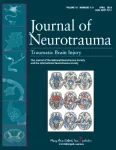Scientists create tailored drug for aggressive breast cancer
2024-05-22
(Press-News.org)
Scientists have used breast cancer cells’ weakness against themselves by linking a tumour-selective antibody with a cell-killing drug to destroy hard-to-treat tumours.
The research, published today in Clinical Cancer Research by a team from King’s College London and funded by Breast Cancer Now, marks a new method in cancer treatment.
The discovery is particular to triple negative breast cancer, which makes up 15% of all diagnosed breast cancer. This type of breast cancer is typically aggressive, resistant to chemotherapy, has a lower survival rate and is more common in women under 40.
Usual treatment involves surgery, chemotherapy and radiotherapy, however this type of cancer can evade the drugs and return to spread again.
The scientists conducted data analysis using over 6000 breast cancer samples to investigate the properties of breast cancer cells that are associated with aggressive and chemotherapy-resistant cancers.
They studied the cancer’s biology, what is expressed in the tumour and the cell surface, and the cell’s insides to understand how the cancer cells escape from cancer drugs. They established the presence of the cancer cell surface marker EGFR along with oncogenic molecules cyclin-dependent kinases (CDK), which are responsible for cell division and proliferation.
They used this knowledge against the cancer cells to link cetuximab, a tumour-selective antibody that targets the EGFR protein expressed in this type of cancer, with a CDK-blocking drug to create a tailored drug for breast cancer. Because the antibody drug conjugate specifically targets the cancer cell, it may be possible to administer a lower inhibitor dose than usual which means it’s less toxic for the patient.
Lead author Professor Sophia Karagiannis, from King’s College London, said: “We were on the hunt for cancer’s vulnerabilities and now we’ve found out how we can guide our therapies to one of these. We combined these two drugs to create a tailored antibody drug conjugate for patients with this aggressive cancer. The antibody guides the toxic drug directly to the cancer cell which offers the possibility for a lower dose and less adverse side effects to be experienced.
“More work needs to be done before this therapy can reach the clinic, but we expect that this can offer new treatment options for cancers with unfavourable prognosis. Beyond this antibody drug conjugate, we hope that our concept will lead the way for new antibody drug conjugates of this type to be tailored to patient groups likely to benefit.”
Lead research scientist Dr Anthony Cheung from King’s College London said: ‘’Triple negative breast cancer represents a molecularly and clinically diverse disease. By exploiting EGFR overexpression and dysregulated cell cycle molecules in selected patient groups, the antibody drug conjugate, but not the antibody alone, could stop the cancer cell from dividing and engender cytotoxic functions specifically against the cancer cells.’’
Dr Simon Vincent, director of services, support and influencing at Breast Cancer Now, which funded this research, said: “Each year, around 8,000 women in the UK are diagnosed with triple negative breast cancer, which is typically more aggressive than other breast cancers and more likely to return or spread following treatment.
"This exciting research has not only improved our understanding of the properties of aggressive breast cancer cells that are resistant to chemotherapy but has also brought us closer to developing a targeted therapy that destroys these cancer cells while minimising side effects for patients.
"While further research is needed before this treatment can be used in people, this is an exciting step forward in developing targeted therapies for triple negative breast cancer, and we look forward to seeing how these findings could lead to new and effective ways of tackling this devastating disease."
END
ELSE PRESS RELEASES FROM THIS DATE:
2024-05-22
EMBARGO: WEDNESDAY 22 MAY, 00:01 BST (TUESDAY 21 MAY, 19:01 ET).
Changes to the definitions of conceptual words like ‘woke’ and ‘gaslighting’ are harming our ability to communicate and understand our experiences, a Leeds academic argues.
In a new paper published in The Philosophical Quarterly journal, an ethicist at the University of Leeds has coined a term for the harm caused when language change leaves us lost for words.
Words such as ‘woke’, ‘depression’, ...
2024-05-22
Dogs with Indigenous ancestry were eaten during a period of starvation at Jamestown, the first English settlement in North America in the 17th century, according to new research in American Antiquity, published by Cambridge University Press on behalf of the Society for American Archaeology.
This discovery changes historians’ understanding of how Indigenous communities negotiated their relationship with rising colonial powers during this period. It also suggests that early European colonists depended on local Indigenous communities for their very survival, especially during the initial settlement period.
Researchers analysed ancient mitochondrial DNA from archaeological dogs from Jamestown ...
2024-05-22
Australia lacks fearsome large carnivores like lions and wolves, and the relative lack of fear that marsupials like kangaroos and wallabies show to dogs (and other introduced carnivores) has been attributed to a lack of evolutionary experience with large mammalian predators. This, however, overlooks the 50,000-year-long presence in Australia of the world’s most fearsome predator – the human ‘super predator.’
A new study conducted by Western University biology professor Liana Zanette, in collaboration with Calum ...
2024-05-22
NEW YORK – May 21, 2024 – The Cardiovascular Research Foundation® (CRF®) has announced New York Valves: The Structural Heart Summit will feature 12 Late-Breaking Clinical Trials and Science presentations. New York Valves 2024, the expanded iteration of our renowned annual Transcatheter Valve Therapy (TVT®) conference, will take place June 5-7, 2024, at the Jacob K. Javits Convention Center, North in New York City.
For nearly two decades, CRF® has led the way in pioneering transcatheter therapies for structural heart ...
2024-05-22
EMBARGOED UNTIL: 2:15 p.m. PT, May 21, 2024
Session: C94 - Asthma Quality Improvement, Health Services Research, and Disparities
Utilization of Single Maintenance and Reliever Therapy (SMART) for Moderate and Severe Asthma
Date and Time: Tuesday, May 21, 2024, 2:15 p.m.
Location: San Diego Convention Center, Room 28A-B (Upper Level)
ATS 2024, San Diego – Only 14.5 percent of adult patients with moderate or severe asthma are prescribed the recommended SMART combination inhaler regimen and over 40 percent of academic pulmonary and allergy clinicians have not adopted this optimal therapy, according to research published ...
2024-05-22
Hemangiosarcoma is a common and aggressive type of cancer in dogs that arises from blood vessel cells and spreads very quickly, throughout the body, frequently affecting the spleen, liver, heart and muscles, among other organs.
“Because this type of cancer comes from blood vessels, it is common for these tumors to suddenly cause massive bleeding into the abdomen or chest,” says Heather Gardner, D.V.M., Ph.D., DACVIM (Oncology), GBS20. “Often when a dog is diagnosed, it is an emergency due to the blood loss associated with tumor rupture. They can have other problems related to hemangiosarcoma, such as lethargy, weakness, and ...
2024-05-21
The skin or peel of the Jaboticaba berry (Plinia jaboticaba), a native of the Brazilian Atlantic Rainforest, is usually thrown away because of its astringency (due to an abundance of mouth-puckering tannins), yet it can be a powerful ally in the treatment of obesity and metabolic syndrome, according to an article published in the journal Nutrition Research.
Conducted by researchers at the State University of Campinas (UNICAMP) in São Paulo state (Brazil), the study showed that inflammation and blood sugar levels improved in volunteers with obesity and metabolic syndrome who took 15 g per day of powdered jaboticaba peel as a dietary supplement for five weeks.
“The ...
2024-05-21
New Rochelle, NY, May 21, 2024—A new study in the peer-reviewed Journal of Neurotrauma contends that a significant fraction of traumatic intracranial aneurysms (TICAs) is missed on initial contrasted scans of patients suffering a civilian gunshot wound to the head (cGSWH). The study was designed to characterize acute TICAs using admission CT angiography (aCTA). Click here to read the article now.
The study showed that the presence of an intracerebral hematoma was the main predictor of TICA in cGSWH. Larger intracerebral hematomas in patients with cGSWH suggest hidden TICAs.
“When CTA was performed acutely, TICAs were ...
2024-05-21
With more than 70 countries hosting national elections, 2024 is the biggest election year in history, according to The Economist.
But how misinformation impacts elections, especially with the rise in content generated by artificial intelligence, continues to be of concern.
A research team examined misinformation narratives on social media in 2023 regarding the Taiwanese presidential election on January 13, 2024. They were especially interested in how narratives targeted relations between Taiwan and the United States.
Misinformation targeted mistrust and skepticism toward the U.S. rather ...
2024-05-21
OAKLAND, CA – Officials throughout the state of California have developed plans to start deploying green hydrogen at scale in the coming decade in order to reach California’s 2045 climate neutrality targets. A new analysis, published by scientists at PSE Healthy Energy, finds that while certain applications of green hydrogen may present opportunities to lower greenhouse gas emissions, many challenges remain and misalignments between current proposals could undermine progress toward state climate goals.
“Many state and local agencies are counting on massive build outs of green hydrogen infrastructure in the coming decades to achieve their climate targets,” ...
LAST 30 PRESS RELEASES:
[Press-News.org] Scientists create tailored drug for aggressive breast cancer


